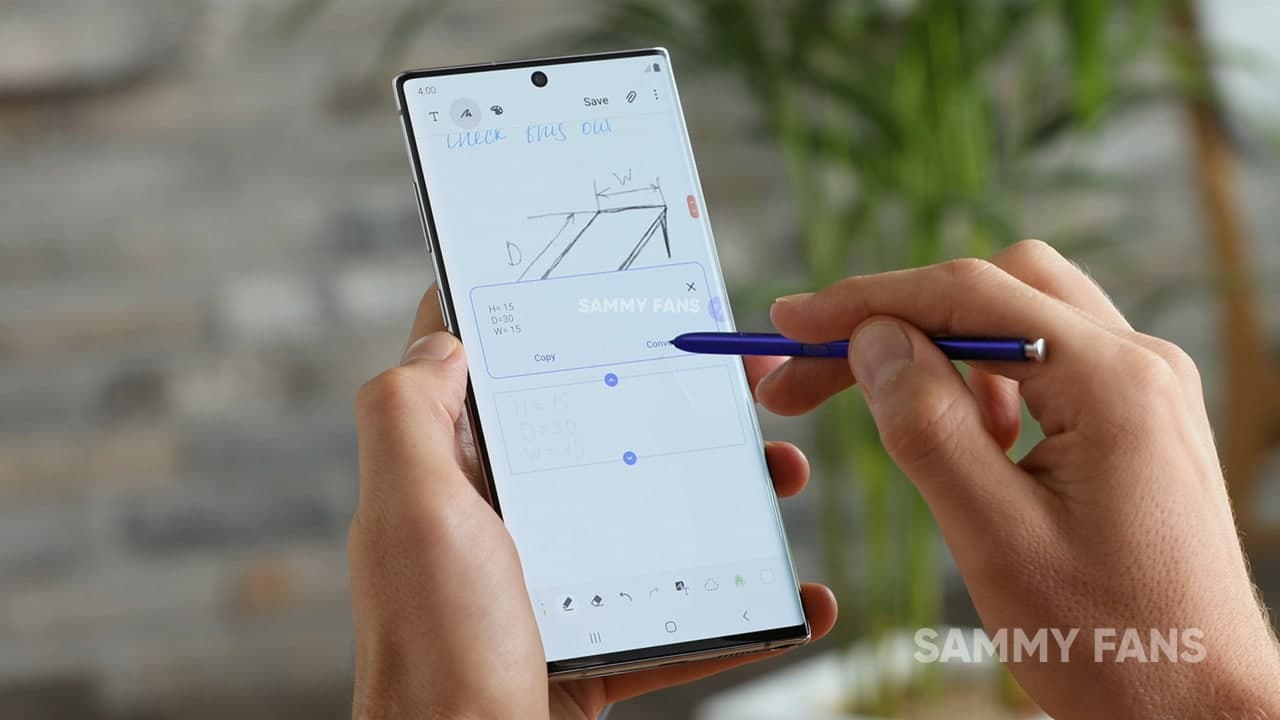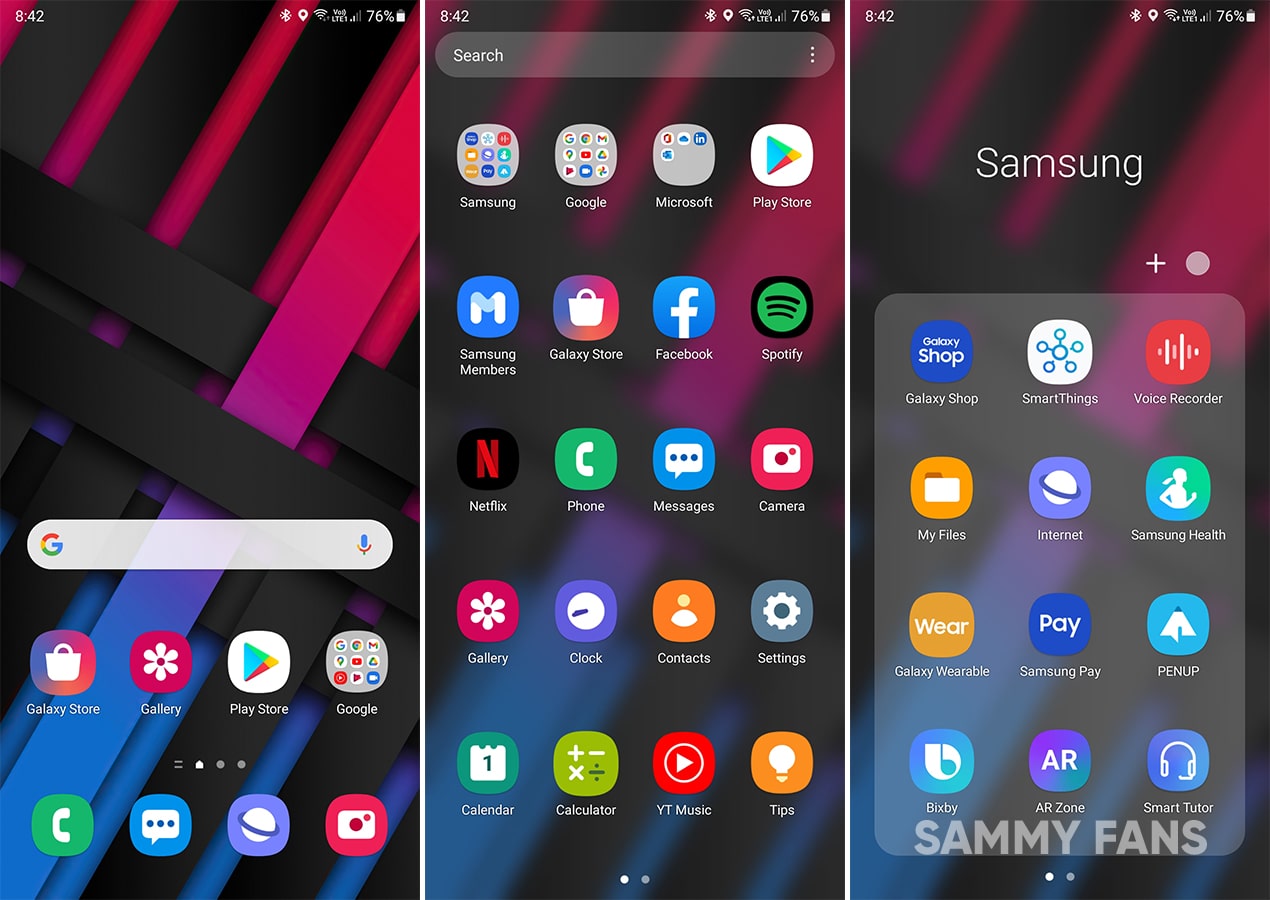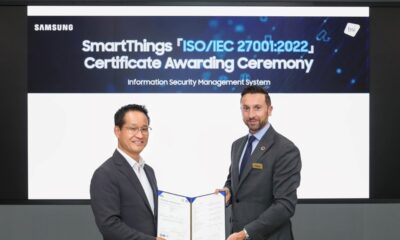News
Samsung Galaxy Note 10 series will receive One UI 3.0/Android 11 in January 2021

So, the schedule of the most awaited Android 11 based One UI 3.0 update for each eligible Samsung smartphone is finally arrived. Starting this month, the latest version of Samsung’s One UI will be released to various Galaxy devices until later next year.
Here, we’re talking about the older flagship smartphones of the Galaxy Note lineup, the Galaxy Note 10 and Note 10+. These smartphones are listed to receive the eleventh generation of Android from January next year. Samsung’s One UI 3.0 is built on Android 11 OS which brings several new features and improvements.

Meanwhile, the South Korea tech giant releases every single update to its Galaxy devices in several batches, so it is early to confirm the exact date for each smartphone market. However, it is confirmed that the Galaxy Note 10 series users will start grabbing the One UI 3.0 update starting January 2021.
As we know, the One UI 3.0 is already available as a testing version for various Galaxy devices including the Galaxy S20, Note 20, S10, and Note 10 series devices. Adding to this, Samsung has also provided a chance to its foldable devices such as Galaxy Z Fold 2 and Galaxy Z Flip.
Samsung Galaxy Note 10 series smartphones have got two One UI 3.0 betas in South Korea while the users of India and UK received the first One UI 3.0 beta update. Meanwhile, the company has yet to announce the One UI 3.0 beta testing program for the remaining eligible regions including the US, Germany, Poland, and China.
Don’t miss: How to join Samsung One UI 3.0 beta program for Galaxy Note 10 series
Under the One UI 3.0 beta testing program, users can test the latest features and improvements before its stable release. Similar to any other beta trial, users of the Galaxy Note 10 devices also face different kinds of bugs and issues.
As per the previous reports, Samsung Galaxy S20 models will become the first to get the latest features and improvements with the Android 11 based One UI 3.0 version. Beginning from the Galaxy S20 series, the One UI 3.0 will hit the Galaxy Note 20 series then it will arrive for the Galaxy Note 10 smartphones.
With the One UI 3.0, your phone’s user interface will be completely redesigned. Aside from the UI changes, it also brings a set of latest features, improvements for the old ones, and optimizations to the system.

One UI 3.0: Home Screen
You can check the entire update schedule and eligible Galaxy device via the attached article below.
News
Here’s why Google Messages replaced Samsung Messages on Galaxy devices

Samsung’s latest foldable phones come with Google Messages by default. The company has now revealed the reason behind this move on Galaxy devices. Samsung says Google Messages replaced Messages to foster RCS adoption.
According to AndroidAuthority, a source explained Samsung’s decision to switch to Google Messages as the default messaging app. The recently released Galaxy Z Flip 6 and Z Fold 6 come with Google Messages with RCS enabled by default.
Looks like promoting Google Messages on Galaxy devices will boost RCS adoption. Samsung Messages isn’t already installed on newer phones. However, one’s stopping you from getting it on your Galaxy from the Galaxy Store.
While many apps support the RCS feature, Google Messages offer the best user experience. Making it a default messaging app is an effort to boost the adoption of RCS tech. Apple is also preparing to bring RCS chat functionality to iMessage for iPhones.
What Samsung source said:
- Even if messaging apps follow the RCS standard, the availability may be limited depending on which app the other party uses. That’s why we decided to make Google Messages the common messaging platform, allowing Galaxy users to communicate more freely. This also enables a messaging app to respond to changes of the RCS standard more quickly and efficiently.
Previously, Samsung devices launched in the US came with two messaging apps. This time, the company has removed the Samsung Messages. During the first setup, users are notified that Google Messages is the default messaging application.
News
Samsung SmartThings gets ISO 27001 certified

Samsung SmartThings gained the international standard ISO/IEC 27001:2022 certification. The company has officially announced this major development in its global connected living platform.
SmartThings received ISO/IEC 27001:2022 certification for information security management systems. Certification reiterates that the SmartThings Cloud operates per international standards.
To be certified, a company has to meet the standard across a total of 123 detailed items, including policies for information security, access control for information assets, and incident response.
SmartThings receiving the ISO 27001 certification is the result of our sustained focus on the protection of information in a hyper-connected world with exponentially increasing intelligence.
Seungbum Choi, Executive Vice President and Head of Device Platform Center at Samsung Electronics said “this is just another step in our drive to fortify the platform’s security. We will continue to find new ways to ensure that SmartThings’ personalized services are provided even more safely.”

BSI Prez says that they have recognized that the operation capability and security level of Samsung SmartThings is excellent. It will further boost trust in the SmartThings platform and strengthen business competitiveness.
ISO 27001 is the leading global standard for ISMSs and was established by the International Organization for Standardization. It provides companies with guidance to manage the risks to information assets systematically and achieve information protection goals.
News
Dr.diary fuels Samsung Health with glycated hemoglobin algorithm
Samsung Health app integrated the Dr.diary (Doctor Diary) glycated hemoglobin feature. The blood sugar management platform announced the launch of its glycated hemoglobin estimation functionality on Samsung’s Health application.
According to ETNews, Dr.diary announced the integration of a glycated hemoglobin level feature in Samsung Health. Galaxy users will now be able to check the estimated glycated hemoglobin level provided by Doctor Diary.
To activate the feature, Health app users will have to permit certain conditions of data in the Blood Sugar service. It is worth noting that glycated hemoglobin is a key figure for diabetes diagnosis, which users will find worth using in the Health app.
Established in 2017, Dr.diary is a blood sugar management platform. It analyzes and predicts the changes in glycated hemoglobin using its own algorithm. Earlier this year, the firm secured a patent for “glycated hemoglobin estimation based on blood sugar data table.”
Song Je-yoon, CEO of Doctor Diary, said, “With our predicted glycated hemoglobin level prediction algorithm being installed in Samsung Health, more people will be able to recognize their glycated hemoglobin level and manage their health more efficiently.”

Glycated hemoglobin (HbA1c) is a standardized numerical value of the percentage of hemoglobin, such as hemoglobin, which has been glycated by glucose. Glycated hemoglobin reflects the average blood sugar level over the past 2-3 months.
Samsung Health (with Wear OS Galaxy Watch) users can conveniently check their estimated glycated hemoglobin level within the app and use this information to manage their blood sugar levels through diet and exercise.












